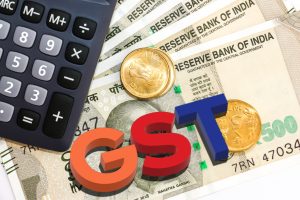 Given that the structure of GST decision making is federal, the budget changes are mostly procedural with respect to the GST. Therefore, the presentation of the Budget is an opportunity to put into the Act and later notify changes announced in the previously held GST Council meeting.
Given that the structure of GST decision making is federal, the budget changes are mostly procedural with respect to the GST. Therefore, the presentation of the Budget is an opportunity to put into the Act and later notify changes announced in the previously held GST Council meeting.
Of the most important changes is the addition of new section 158A in the CGST Act to allow businesses to now share GST data digitally with consent. It prescribes the manner and conditions for sharing information furnished by a registered person on the GST portal with such other systems as may be notified. This information may be as declared in the returns filed under GSTR-1/GSTR-3B or GSTR-9, the application of registration, through e-Invoices or e-way bills, or any other details. Once this is notified, and made functional, it will lead to true digitisation of data and allow enterprises to seek credit and other opportunities simply via sharing of data with due consent.
Another major amendment was made to Section 16 governing input tax credit claims. In cases where a recipient taxpayer fails to pay their supplier for an invoice (including the GST value) within 180 days from the date of issue of the invoice, they must pay to the government an amount equal to the input tax credit claimed with interest.
The government also proposed to amend the composition scheme rules. Under this scheme small businesses operating within a state are enrolled in a much simpler scheme for paying taxes and filing returns. This change will allow taxpayers to opt for the composition scheme even if they are supplying goods through an e-commerce operator where TCS is collected under Section 52. Earlier suppliers on e-commerce platforms were not allowed to opt for the composition scheme.
Finance Bill 2023 proposed new changes to the Goods and Services Tax (GST) laws, imposing new filing restrictions under Sections 37, 39, 44 and 52. This means that GST-registered taxpayers can now no longer file their GSTR-1 (return for outward supplies), GSTR-3B (summary return), GSTR-9 (annual return), and GSTR-8 (return for e-commerce operators) for a tax period where three years have elapsed since the relevant due dates. Given that the GST law previously used to allow belated return filings with the applicable penalties, this is a noteworthy change.
Source: https://economictimes.indiatimes.com/news/economy/policy/view-budget-2023-to-allow-consent-based-use-of-gst-data-to-unleash-benefits-for-taxpayers/articleshow/97598796.cms


